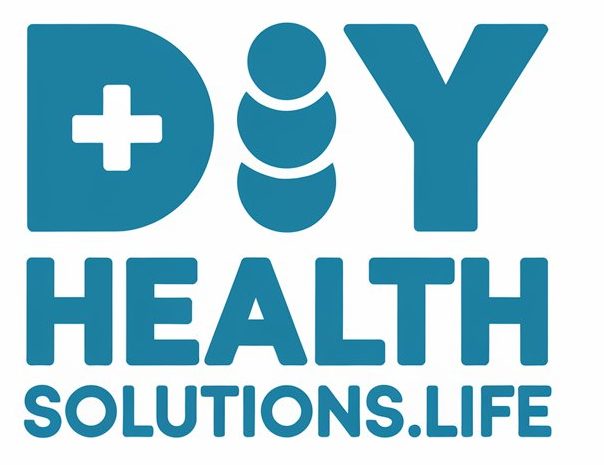Say Goodbye to Bloating With These Belly Relief Hacks!
Bloating can be uncomfortable, but you can tackle it with some easy belly relief hacks. Start by taking a 10-15 minute walk after meals; it helps digestion and reduces gas. Sip on warm herbal teas like peppermint or ginger to relax your intestines. You might also try an abdominal massage to stimulate your digestive system. Keeping a food diary can help you identify trigger foods that cause bloating. Lastly, incorporating regular exercise and stress management techniques, such as yoga, can improve your overall digestion. Stay tuned for more helpful tips to keep your belly happy and comfortable!
Understanding Bloating Causes
Bloating can be a frustrating experience for many people, often leading to discomfort and unease. This sensation is typically caused by excess gas buildup in your gastrointestinal tract. You might notice it happening after a big meal, especially if you’ve eaten too quickly or gulped down a carbonated drink.
Certain foods can also trigger bloating, like high-sodium snacks, beans, and sugar-free products with artificial sweeteners.
If you’ve ever felt bloated after having dairy, it could be a sign of lactose intolerance, where your body struggles to digest lactose. Women may also experience bloating due to hormonal changes during their menstrual cycle, leading to water retention.
If you find yourself feeling bloated regularly, it’s essential to pay attention to your body’s signals. Chronic bloating might indicate something more serious, like irritable bowel syndrome (IBS) or inflammatory bowel disease (IBD).
In such cases, consulting a healthcare professional is crucial. Understanding the causes of bloating helps you identify triggers, allowing you to make better dietary and lifestyle choices to support your digestive health.
Quick Relief Strategies
When you’re feeling uncomfortable from bloating, quick relief is often a priority. Luckily, there are some effective quick relief strategies you can try.
First, take a 10-15 minute walk after your meal. This simple activity helps promote mobility in your digestive tract, easing the discomfort. If you’re in urgent need of relief, consider over-the-counter medications like simethicone capsules, which assist in gas expulsion, helping you feel better quickly.
Another great option is to sip on warm herbal teas, especially peppermint or ginger. These soothing drinks relax your intestinal muscles, making it easier for your body to process food and reduce bloating.
Additionally, giving yourself an abdominal massage can stimulate bowel movement and encourage gas expulsion, offering immediate comfort.
Yoga Poses for Digestion
If you’re seeking relief from digestive discomfort, incorporating yoga into your routine can be a game-changer. Certain yoga poses can help reduce bloating and improve digestion, making you feel more comfortable in your body.
Start with the Cat-Cow Pose, which promotes core engagement and enhances blood flow, helping to release trapped gas. The Sphinx Pose works similarly, easing bloating while boosting circulation.
Next, try the Extended Triangle Pose; it stretches your lateral muscles and encourages digestive movement, making it easier for your body to process food.
Don’t forget the Happy Baby Pose! This pose relaxes your lower back and hips, facilitating gas release and enhancing overall digestion.
Adding torso twists to your routine can also stimulate your digestive organs, relieving tension in your abdomen.
Finally, gentle poses like the Extended Puppy Pose can significantly reduce stress on your digestive system, further alleviating bloating symptoms.
Dietary Adjustments
Making dietary adjustments can dramatically improve your digestive health and ease discomfort. Start by keeping a food diary to pinpoint specific trigger foods. You might discover that carbonated drinks, dairy, or high-FODMAP items are causing bloating symptoms. Once you identify these, consider making dietary changes to limit or eliminate them from your meals.
Gradually increasing fiber intake from fruits, vegetables, and whole grains can also help. Fiber promotes regular bowel movements, reducing bloating overall.
Additionally, it’s crucial to limit processed foods and high-sodium items, as too much salt can lead to water retention, making you feel even more bloated.
Incorporating probiotic-rich foods like yogurt and fermented products into your diet can restore gut flora balance, alleviating discomfort. These foods are your gut’s best friend!
Lastly, don’t forget about hydration. Drinking plenty of water and herbal teas, such as peppermint and ginger, can support digestion and significantly reduce bloating symptoms.
With these simple dietary adjustments, you’ll be on your way to a happier belly in no time!
Long-term Solutions
To achieve lasting relief from bloating, it’s essential to adopt sustainable lifestyle changes that go beyond quick fixes. One effective long-term solution is following a low-FODMAP diet. This approach can reduce IBS symptoms by about 45%, helping you manage bloating efficiently.
Gradually increasing your fiber intake is another key factor. It helps prevent constipation, improving your overall digestive health over time.
Regular physical activity, like cardio and core-strengthening exercises, also plays a vital role. Staying active promotes bowel regularity and reduces water retention, contributing to long-term relief from bloating.
Don’t forget about the power of probiotics! Incorporating these beneficial bacteria into your diet can help regulate your intestinal flora, potentially reducing gas production and alleviating bloating symptoms over time.
Keeping a detailed food diary for several weeks can be a game changer, too. By tracking what you eat, you can identify specific dietary triggers that lead to bloating, allowing for more informed adjustments.
Embracing these strategies not only helps you feel better but also equips you with the tools to maintain a healthy, comfortable belly for years to come!
Home Remedies
Many people find comfort in home remedies for bloating, as they often provide quick relief without the need for medication. One popular option is peppermint tea, which relaxes the digestive tract muscles, helping to alleviate that uncomfortable bloating.
You might also want to add ginger to your diet; whether in tea or as a spice, it’s known for its anti-inflammatory properties that can reduce bloating and promote digestive health.
Another simple remedy involves using a warm compress. Just apply it to your abdomen to relax the muscles and improve blood flow, offering you immediate relief.
If you’re looking for something a bit different, try fennel seeds. Chewing them or steeping them in hot water can help reduce gas and bloating thanks to their natural carminative properties.
Lastly, consider supplements like Beano, which contain alpha-D-galactosidase. These can aid in digesting hard-to-digest carbohydrates, helping to prevent bloating from foods like beans and certain vegetables.
With these home remedies, you’re well on your way to feeling comfortable and confident again!
Tracking and Identifying Triggers
Tracking and identifying triggers can be a game-changer for managing bloating. By keeping a food diary for several weeks, you can pinpoint specific foods and drinks that lead to bloating symptoms. This allows you to make informed dietary choices that suit your body.
Don’t forget to monitor the timing of your meals and snacks, as this can reveal patterns that correlate with your bloating episodes. Sometimes, it’s not just what you eat but when you eat that matters.
Pay special attention to the frequency and quantity of carbonated beverages you consume. These drinks can introduce excess gas into your digestive system, often resulting in discomfort.
Tracking your symptoms alongside your dietary intake helps you understand how different food combinations impact bloating. This way, you can avoid those tricky triggers that leave you feeling uncomfortable.
Lastly, regularly reviewing your food diary with a healthcare professional can provide additional insights. They can help you navigate your findings and offer guidance on effectively managing your bloating.
With dedication to tracking and identifying your triggers, you’ll be on your way to feeling more comfortable in no time!
When to Seek Medical Help
Identifying your bloating triggers is an important step in managing your symptoms, but it’s equally vital to recognize when it’s time to seek medical help. If you notice persistent bloating lasting several days or weeks, it could indicate underlying medical conditions, such as irritable bowel syndrome (IBS) or inflammatory bowel diseases like Crohn’s disease.
It’s crucial to pay attention to any accompanying symptoms. If you experience severe abdominal pain, unexplained weight loss, or significant changes in your bowel habits, don’t hesitate to reach out for medical advice, as these could signal serious health issues.
Additionally, immediate consultation with a healthcare provider is necessary if you notice blood in your stool, vomiting, fever, or difficulty eating. These symptoms may point to a medical emergency that needs urgent attention.
Keeping a food diary can be helpful when discussing your symptoms with your doctor, as it may assist in identifying potential causes of bloating. Regular screenings and check-ups are also recommended, especially for older adults or those experiencing chronic bloating, ensuring that any underlying concerns are addressed promptly.





